A Palace in Paradise is a novel about the complex Iranian refugee and immigrant community in Toronto and the way in which one woman’s death changes the lives of many others. The people in this community are connected by family ties, cultural ties, romance, and the fact that, as immigrants, they not only share a culture, but they also share a past of political violence. Several were at one time imprisoned in Evin, a notorious jail in the Islamic Republic of Iran. Some were unable to withstand the daily torture and constant physical pain they were subjected to in Evin, and thus began to cooperate with the jail’s authorities and participate in the torturing, even execution, of other prisoners. Many are incapable of having a normal life even after being released from the prison, and having immigrated to Canada to start a new life. Parvaneh, a social worker, accepts her friend, Ferdous, even though she may be a traitor. She is pitted against Nadereh, a refugee who learns that Ferdous was a traitor and feels duped. Guilt is a major theme in this book as characters deal with remorse from having caused the death of another by accident, or by not acting sooner, or by betrayal to the authorities. Life in exile is not easy and some succumb to their dark past with fatal consequences, while others struggle to forgive and find solace.
“Mehri Yalfani’s A Palace in Paradise fills an important gap in contemporary fiction, bringing the Irani-Canadian diaspora into critical focus through a predominantly female cast of characters—émigrés who seek in Toronto and its environs a space of refuge and forgetting, while discovering, among a community of exiles still shackled to the shadow of history, that it is only in those quiet acts of will, like those private acts of kindness, that we possess the power to set ourselves free.”
—Mariam Pirbhai, Professor, Wilfrid Laurier University, and award-winning author of Outside People and Other Stories
“A Palace in Paradise leaps off the page with its compelling storyline of human endurance. This deeply humane novel allows the reader an intimate glimpse into the world of Iranian immigrants and refugees in present-day Toronto, their hopes and fears, their strengths and weaknesses, their joys and despair, as each in his or her own way tries to cope with the upheaval of former lives and adjustment to new lives. The struggles of Parvaneh, an empathetic social worker, and her husband, Mahan, and their circle of friends and acquaintances, especially Ferdous and Nadereh, are magnified by backgrounds of anguish and guilt, as well as relationships made more complex by betrayal of husbands and lovers. Their task is to overcome the past and find a way to go forward into the future. That some do find a way to live and even find happiness is a credit to the human spirit.”
—Cecelia Frey, author of Lovers Fall Back to Earth and The Long White Sickness

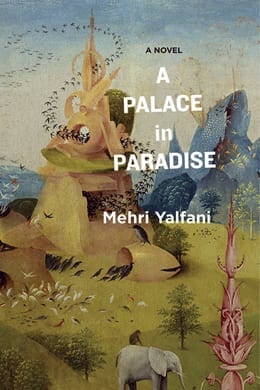
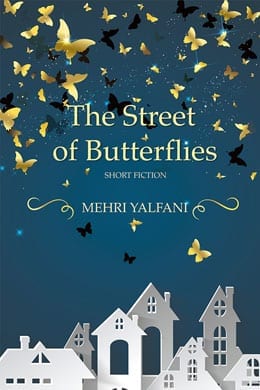
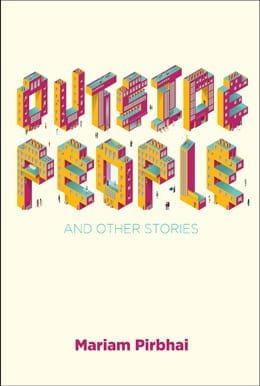
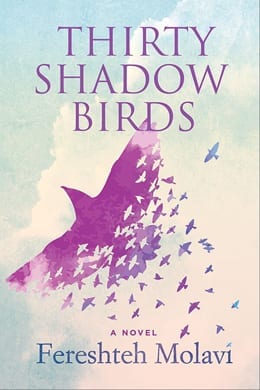
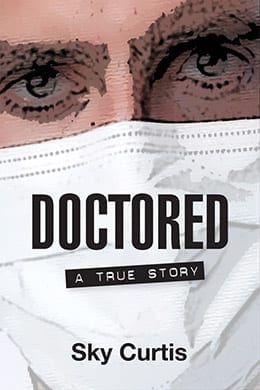
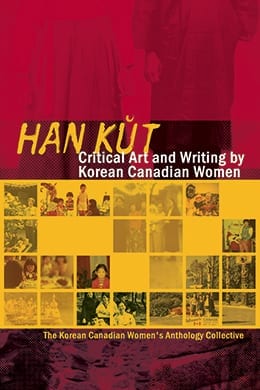
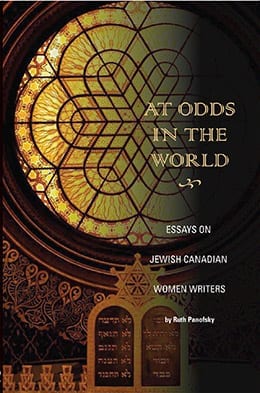
Inanna Admin –
A Palace in Paradise by Mehri Yalfani
The Miramichi Reader – September 5, 2019
https://miramichireader.ca/2019/09/palace-in-paradise/
The life of Iranian exiles in Toronto and the rumour that there is a traitorous woman in their midst provides drama and a lot of soul-searching in A Palace in Paradise (2019, Inanna Publications). Ferdous, a poor single Iranian woman with mental health issues has made up her mind to help a fellow Iranian-Canadian woman, Frida, by donating a kidney. Her decision causes a rift between her friend Nadereh and her social worker, Parvaneh. Nadereh believes that Ferdous is not of sound mind to make such a major decision, and Parveneh believes it is Ferdous’ business if she wants to do such a thing. Nadereh pleads with Parvaneh to intercede:
“Isn’t she aware of the seriousness of the sacrifice she is making? I’ll do my best, but my words don’t mean anything to Ferdous. She doesn’t look at me the same way she does you. Sweet, innocent Ferdous doesn’t put much stock in my opinions. I’m nobody in her view, just a nothing. But you have a place in the community. You can make an impression on her.”
Parvaneh placed her hand gently on Nadareh’s arm and said, “I don’t understand what you find problematic about her decision. She’s doing a very humane thing.”
Nadereh looked directly into Parvaneh’s eyes, struggling to control herself. She said angrily, “A humane thing! For someone who has control of their faculties, yes, it is a humane act, but not for Ferdous; she needs help herself. They’re taking advantage of her and she doesn’t know it. She believes she’s doing a selfless thing, but there’s no humanity in it. I spit on any humanity that Ghobad and Ibrahim represent. Doesn’t Ghobad have enough money now? He could easily take Frida to another part of the world where he could buy a kidney for her. I don’t understand why you’re feeling sorry for Frida. They’re disgusting.”
“Nadereh, don’t take it so badly. Frida has seen her share of misery. If you knew about her…”
“1 know, I know. But has her life been any more difficult than mine has? And now, look at her, look at me. Are we in the same situation? What about poor Ferdous? Why doesn’t anyone feel sorry for her? Everyone wants to use her to solve their own problems. The Iranians who are so proud of themselves, they have all forgotten about her. As Ferdous says, no one has any patience for a person with mental health issues. But it’s not right to take advantage of the poor woman either. “
A Palace in Paradise is a truly good read from the author of the short story collection The Street of Butterflies. I genuinely enjoyed finding out more about life in Iran after the revolution, and the weighty decision of leaving your family and homeland to come to a different country, for there are many challenges: work, shelter, family responsibilities and obligations. Ms. Yalfani treats all her characters with kindness and empathy, but no more so than she does with poor Ferdous, the woman suspected to be a “tavah” or a traitor.
Every character has lost someone and Ferdous simply wants to donate one of her kidneys to Frida. A Palace in Paradise is another well-penned work of fiction from Ms. Yalfani.
Inanna Admin –
A Palace in Paradise by Mehri Yalfani
reviewed by Kara Abdolmaleki
The Malahat Review 214 – spring 2021
http://www.malahatreview.ca/reviews/214reviews_abdolmaleki.html
A Palace in Paradise tells the all‐too‐familiar story of countless Iranians in Canada, with their memories, past lives, hopes and dreams, sorrows, regrets, and traumas. The places, the relations, and the settings are all too familiar for any Iranian immigrant who escaped the tumultuous 1980s in Iran, the decade of a devastating eight‐year‐long war with Iraq (with millions of casualties and lives turned upside down) and a brutal ideological crackdown after the revolution.
In Iran, where everything is hyper‐politicized, the generation born in the 70s and 80s is referred to as the “burnt generation.” It was this generation that joined the numerous dissident groups, mostly inspired by Marxist or Islamic ideologies, or a combination of the two, and revolted against the Pahlavi dynasty. The price paid was extremely high: many were prosecuted, tortured, and killed; countless families were torn apart. Ironically, it took only a few years after the revolution for this generation to find itself in a position very similar to before the revolution. This time, though, persecution came from the Islamic Republic, as it sought to assert its totalizing authority.
Yalfani’s characters resemble people all Iranians have in their extended family: former political prisoners, refugees living in Europe and North America, the executed, and finally the Tavabs (“the repentant,” political dissidents turned collaborators in prison). The lives of these children of war and of the revolution now intersect in diaspora, in Toronto, the largest Iranian community in Canada. To Iranian‐Canadians, Toronto is a microcosm, a glimpse into Iran’s future in which, free from the yoke of oppression, they are left with the ruins of their lives and the tattered social fabric that now needs to be somehow repaired. Yalfani has masterfully painted a vista that conveys that suspicion and fear within Toronto’s miniature Iran.
As in many immigrant communities, Yalfani’s characters come to realize that their escape has been merely physical; their ghosts, their psychological wounds, their aching hearts, cannot be left behind. The story of A Palace in Paradise is one of coming to terms with the purgatory of immigration, of belonging neither to the homeland nor quite to the new home country, despite all its kindness and its beauty. The characters each enter gradually and reveal their past lives through lengthy monologues placed inside dialogues. At other times, Yalfani’s semi‐omniscient narrator develops the characters or delineates their relationships. This takes away from the literariness of the work, turning it instead into a series of autobiographical nuggets gathered up by the story.
Another consequence of this way of storytelling is that, except briefly, the reader is not free to interpret anything; no unspoken emotions, no unclear fates, and no open‐endedness. And even though the author creates an ending resembling Joyce’s Araby or Hemingway’s Farewell to Arms, she brings everything to light, explaining that Nadereh will leave Parvaneh’s letters unanswered.
The urge to ensure the reader “gets it right” might be due to the fact that the story of Iranian immigrants in Canada is little‐known. Yalfani’s main concern might have been verisimilitude. At any rate, while reading, one cannot help but think that the scenes could have been more effectively dramatized using a third‐person objective narrator.
This lack of dramatic effect impacts Yalfani’s character development. This is especially true for the interaction between Goodarz and Nadereh in High Park: Goodarz tells Nadereh an extremely traumatic story that has long haunted him, but the story is like a short speech and Nadareh’s reaction is even more implausible. The relationship between the two is unconvincing, mainly because Goodarz is portrayed as aloof, uninterested in Nadereh’s life. So when the story of how he has fallen in love with Nadereh is revealed, it contradicts the Goodarz that we have come to know.
We witness Yalfani’s talent as a writer when Mahan reminisces about his forbidden attraction to Nadereh, or the few pages before Ferdous commits suicide. In the former, the story transforms into a free association of scenes from the past and the present. In the latter, Ferdous’s trauma is artfully expressed by the tapping of Frida’s shoes over Ferdous’s memories of torture and execution. Reading these pages, one wonders why such a brilliant, poignant, and befitting style of narration was not employed earlier, or more often. Despite the limitations noted, A Palace in Paradise is essential reading for anyone who would like to gain piercing insight into the hearts and minds of Iranians in Canada. It also serves as a call to Iranian‐Canadians to heal and slowly begin picking up the pieces of our lives.